The Iraqi Shi’a Mobilization to Counter the ISIS Offensive
June 14, 2014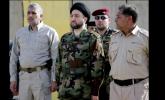
Ahmed Ali with Kimberly Kagan

Ahmed Ali with Kimberly Kagan
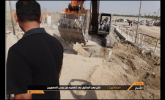
On June 12, 2014, Islamic State of Iraq and al-Sham (ISIS) spokesman Abu Muhammad al-Adnani claimed that ISIS will target Samarra, Baghdad, Karbala, and Najaf. These cities and their Shi’a shrines will not fall the way that Mosul did.
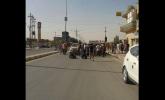
ISIS operations around Samarra during this phase of its northern offensive will be an important indicator of its ultimate intent and its estimate of its own capabilities.
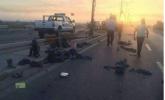
The Islamic State of Iraq and al-Sham (ISIS) has achieved the goals of its major year-long offensive with the fall of Mosul and the collapse of the Iraqi Security Forces north of Baghdad.

The Islamic State of Iraq and al-Sham (ISIS) has a disciplined military command that reports attacks across operating areas that has operated in this manner for at least two years.
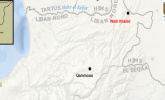
The Syrian regime’s decisive victory over rebel forces in the Qalamoun stronghold of Yabroud, bolstered by support from Lebanese Hezbollah and Syrian National Defense Forces, has significant implications in the overall context of the three-year conflict.
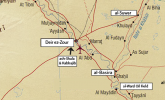
Following the January 2014 uprising by rebel groups in Syria against the Islamic State of Iraq and al-Sham (ISIS), ISIS contracted its footprint in Syria.
The White House is dropping strong hints that the number of American troops in Afghanistan after 2014 may fall below 10,000, possibly even below 5,000. Unnamed White House officials suggested to the press that lower levels of U.S. support to the Afghan National Security Forces (ANSF) will be sufficient to contain future Taliban threats.
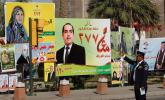
Iraq is experiencing a political and security crisis. Iraq’s April 30, 2014 national elections will determine the shape of Iraq’s national government for the next four years, if indeed a government can endure Iraq’s potential relapse into civil war.
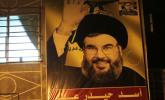
Hezbollah’s deepening involvement in Syria is one of the most important factors of the conflict in 2013 and 2014. The impact of Hezbollah’s involvement in Syria has been felt not just on the battlefield, where the regime now has momentum in many areas, but also in Lebanon where growing sectarian tensions have undermined security and stability.